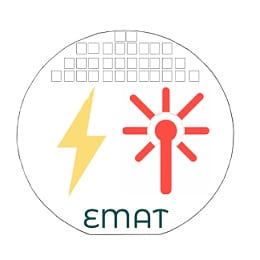EMAT Principal Investigator

Principal Research Scientist, Microphotonics Center and Materials Research Laboratory
Leader, LEAP (Lab for Education and Application Prototypes)
Director, EPP (Electronic-Photonic Packaging at MIT Microphotonics Center)
Ph.D., Electrical Engineering, Boston University
Initiative for Knowledge and Innovation in Manufacturing
Disciplines:
- Electronic Materials
- Nanotechnology
- Photonic Materials, Processes, Devices, and Syatems
Research:
Dr. Anu Agarwal is a Principal Research Scientist at MIT’s Microphotonics Center and Materials Research Laboratory. Her work has focused on the technologies for the foundational components of electronic-photonic chips including polysilicon waveguides, LEDs, couplers, photodetectors, and optical buffers.
Dr. Agarwal has led several research projects at the Microphotonics Center/Initiative for Knowledge and Innovation in Manufacturing (IKIM) at MIT, since its inception. Her prior research includes the integration of active and passive optical components on silicon, using standard Si-CMOS fabrication processes. As a part of this research, she developed, evaluated, and later confirmed, the utility of polycrystalline silicon material for waveguide applications. She also developed a design for a graded-index chip-to-fiber edge coupling scheme.
Her current work centers the mid-IR regime. Although previous silicon microphotonic devices predominantly utilized the NIR range, the MIR regime is extremely interesting for hyperspectral imaging and chem-bio sensing because most chemical and biological toxins have their fingerprints in this range. Her work on MIR linear and nonlinear materials and devices is creating a planar, integrated, Si-CMOS-compatible microphotonics platform which will enable on-chip imaging and sensing applications.
As the leader of the AIM Academy LEAP at MIT since January of 2018, she has and continues to (i) build a roadmap document of photonic sensors through the Integrated Photonic Systems Roadmap – International (IPSR-I) and World Technology Roadmap Forum (WTRF), by identifying technology gaps in materials, components and systems for photonic sensors, and (ii) enable education and workforce development in integrated photonics across the workforce supply chain from K-Gray.
As the director of Electronic-Photonic Packaging (EPP) at MIT’s Microphotonics Center, she is exploring innovative photonic testing and packaging solutions. In this role, Anu is currently pioneering a program in microchip manufacturing sustainability that seeks to build a global alliance focused on establishing a self-consistent path towards sustainability across technology, ecology, and workforce.
As a part of this work and others, Anu was named a 2022 Optica Fellow with over 250 journal and refereed conference publications, 17 awarded patents, and 4 pending patents. Prior to coming to MIT she received her doctoral degree in Electrical Engineering from Boston University, where she investigated the spatial extent of point defect interactions in silicon. With Dr. Agarwal’s cross-disciplinary training, industrial experience, and background in Physics, Electrical Engineering, and Materials Science, she has successfully connected basic sciences with relevant applications, using integrated devices that are manufacturable on a large scale.
Lab for Education and Application Prototypes (LEAP) @MIT

